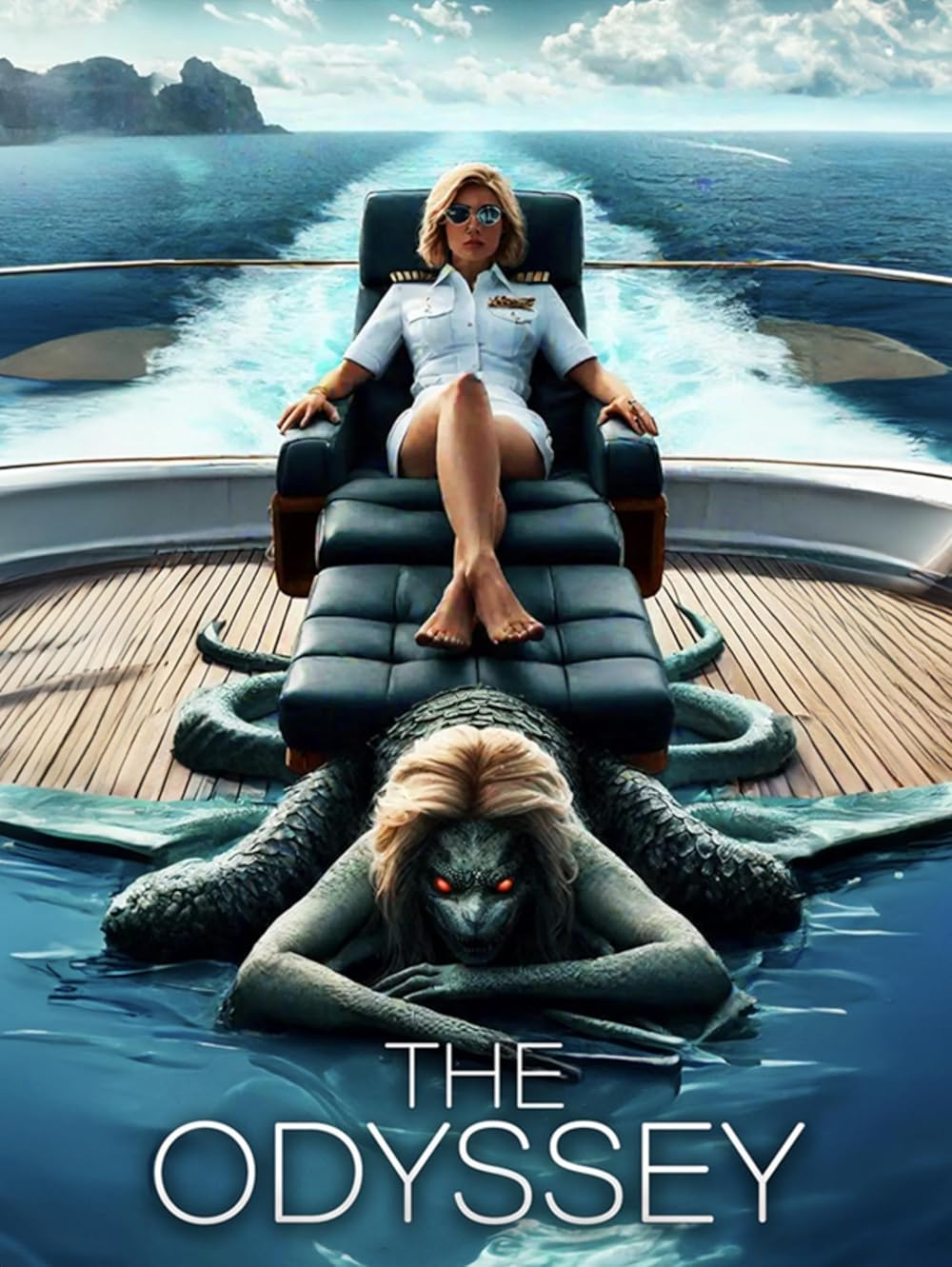
The Odyssey: A New Era of Adaptations and Translations
“The Odyssey” stands as one of history’s most enduring literary masterpieces, captivating audiences for almost 3,000 years. This epic poem, attributed to Homer, explores the remarkable journey of its hero, Odysseus, filled with adventure, temptation, and profound character development. The recent resurgence of interest in “The Odyssey” is evidenced by a new translation by Daniel Mendelsohn, alongside exciting adaptations, including a forthcoming film directed by the acclaimed Christopher Nolan. With over 100 translations available, readers can appreciate diverse interpretations of this rich text and its complex cast of characters. As modern adaptations continue to shed light on its themes, the relevance of “Homer’s Odyssey” remains strikingly apparent in today’s cultural landscape.
The tale of Odysseus represents a journey that transcends time and culture, embodying universal themes of resilience, wisdom, and the quintessential human experience. In various formats, be it stage adaptations or cinematic retellings, this ancient story resonates deeply with contemporary audiences. The profound character arcs found within the narrative allow for exploration of complex relationships and moral dilemmas. Furthermore, translations of the epic bring to light the nuanced language and rich symbolism that make the text a perennial favorite among scholars and leisure readers alike. As the legend of Odysseus continues to inspire modern storytellers and influences contemporary narratives, its compelling themes and characters remain relevant in today’s society.
The Enduring Legacy of Homer’s Odyssey
Homer’s “Odyssey” has captivated audiences for centuries, remaining significant even after nearly three millennia. The narrative’s rich tapestry of adventure, identity, and morality has not only inspired literary scholars but has also influenced numerous adaptations across various media. As we distance ourselves from ancient Greece, the Odyssey’s themes of homecoming and the quest for identity continue to resonate, highlighted by contemporary productions such as the recent stage adaptation by the American Repertory Theater. This persistence is not merely due to its historical significance; it’s a testament to the relatability of the characters, such as Odysseus and Penelope, whose trials and tribulations echo those of modern audiences.
Translations of “The Odyssey” play a critical role in keeping Homer’s masterwork alive. As languages evolve, translators bring fresh perspectives that allow new generations to engage with the original text’s nuances. For example, Daniel Mendelsohn’s upcoming translation is anticipated to breathe new life into the age-old narrative, showcasing the emotional depth of its characters in a contemporary context. These versions fuel discussions about the interpretations of Odysseus’s journey and provide a gateway for audiences unfamiliar with ancient literature, highlighting how the epic’s emotional landscapes mirror the complexities of our own lives.
The Artistic Renaissance of The Odyssey
The current renaissance of interest in “The Odyssey” shines brightly through various artistic interpretations, including stage productions, literature, and film. Christopher Nolan’s upcoming movie adaptation of the epic is particularly noteworthy, given his talent for blending compelling narratives with striking visuals. This cinematic endeavor is expected to introduce Homer’s tale to a wider audience, bridging the gap between classical literature and modern storytelling. Adaptations like Nolan’s often draw out the emotional depth and psychological complexity of characters, making the story accessible to those who may find the original text challenging.
Moreover, stage adaptations such as those produced by the American Repertory Theater breathe new life into this ancient tale, inviting contemporary audiences to witness the drama of Odyssean escapades firsthand. These adaptations encourage a re-examination of the characters and their relationships while emphasizing timeless themes such as loyalty, cunning, and the struggle for power. This artistic revival not only brings Homer’s verses to life but also highlights the universal human experiences embedded within the poem, reminding us that the journey of the soul as depicted in the “Odyssey” transcends time and culture.
The Complexity of Odyssey Characters
One of the most compelling aspects of “The Odyssey” is its rich cast of characters, each contributing to the poem’s multifaceted storytelling. Characters like Odysseus, Penelope, and Telemachus embody various themes of intellect, loyalty, and growth, immersing readers in a world where heroism is not merely physical prowess but emotional resilience. Odysseus, often viewed as the quintessential trickster hero, teaches us about the grey areas of morality. Conceiving him as a flawed hero adds depth to our understanding, particularly given his strategic cunning contrasted against moments of personal weakness.
Penelope’s character serves as a powerful counterpart to Odysseus’s journey. Her wisdom, strength, and ingenuity in staving off the suitors present a nuanced portrayal of female agency. Her clever handling of the situation, especially through her ruse of weaving and unweaving a tapestry, highlights her intelligence and resourcefulness. Penelope’s narrative is as captivating as Odysseus’s adventures, showcasing that the journey through life’s challenges is equally shaped by the experiences of women, thereby expanding our understanding of character dynamics in the epic.
The Influence of Modern Adaptations on The Odyssey
Modern adaptations of “The Odyssey,” including various films, books, and stage plays, play a crucial role in revitalizing interest in the epic poem. By reinterpreting Homer’s themes through contemporary lenses, these adaptations allow audiences to relate to the timeless struggles of Odysseus and his companions on their quests. The aesthetic choices made by directors, writers, and artists can profoundly affect how the tale is perceived, offering new insights into the motivations of characters such as Odysseus and Penelope. This profound connection fosters appreciation for the original narrative while simultaneously highlighting the relevance of its core themes.
Christopher Nolan’s anticipated adaptation brings with it the hope of a new understanding of the ancient text’s complexity. Known for his intricate storylines and visual storytelling, Nolan’s version is expected to provide a fresh perspective on the narrative while staying true to the surreal elements of Homer’s work. By merging classical themes with modern storytelling techniques, contemporary adaptations help to bridge the gap for new audiences who might otherwise overlook the epic. This evolution encourages ongoing conversations about the interpretation and significance of characters and themes in both historical and modern contexts.
Translations of The Odyssey: A Lens to Understanding
The myriad translations of “The Odyssey” serve as crucial lenses through which readers can gain insight into the poem’s themes and characters. Each translation encapsulates the essence of Homer’s work while introducing unique interpretations that resonate with different audiences. Scholars have debated the merits of various translations, with George Chapman’s pioneering work in the 17th century and Emily Wilson’s recent contributions representing a spectrum of stylistic choices. These translations influence how readers connect with the text, allowing for personal exploration of heroic narratives and the journey of the soul.
In the realm of translation, the balance between fidelity to the original Greek text and engaging readability is vital. Mendelsohn’s upcoming translation promises to enrich readers’ experiences by highlighting the emotional intricacies of characters like Odysseus and Penelope. Furthermore, translations can help contextualize the tale within its historical period, making it more accessible to modern readers. By exploring various interpretations of key passages, readers can appreciate how different translators capture the essence of the epic and how their choices impact the narrative’s reception across cultures and time.
The Hero’s Journey in Homer’s Odyssey
Central to the appeal of “The Odyssey” is the concept of the hero’s journey, which serves as a universal archetype that transcends cultural boundaries. Odysseus’s long and arduous journey home after the Trojan War embodies various stages of the hero’s journey, including departure, initiation, and return. Each encounter with mystical beings, treacherous landscapes, and the ultimate challenge of returning home illuminates the complexities of personal growth and self-discovery. Readers gain insight into Odysseus’s character through these trials, examining not only his strengths but also his vulnerabilities.
The symbolism found within Odysseus’s journey reflects deeper philosophical and psychological themes, particularly the notion of a ‘journey of the soul.’ The adventure is not just a physical one but also a metaphorical path to understanding oneself and confronting internal and external conflicts. This duality enriches the narrative, allowing readers to engage with the text on multiple levels. Exploring these themes and understanding the implications of Odysseus’s challenges invites reflection on our personal quests for meaning and identity.
Penelope: The Unsung Hero of The Odyssey
Often overshadowed by Odysseus’s adventures, Penelope emerges as a formidable character in “The Odyssey.” Her unwavering loyalty and cleverness allow her to navigate the challenges posed by the suitors vying for her hand, demonstrating that heroism comes in many forms. Penelope’s ability to maintain her household and her intellect in devising plans to delay the suitors illustrates her resourcefulness. Her character embodies the theme of fidelity and waiting, contrasting sharply with Odysseus’s active pursuit of adventure. This juxtaposition invites readers to rethink traditional notions of heroism.
Greg Nagy’s interpretations highlight Penelope’s complexity, suggesting that her inner strength might even rival Odysseus’s cunning. The parallels between her and Odysseus emphasize the shared burdens of their love, as they both face trials that test their character and resolve. As modern audiences explore her narrative further, Penelope’s story becomes an integral aspect of the overall journey, inviting reflection on themes of perseverance, intelligence, and the quiet strength found in domestic life.
Odysseus: The Trickster Hero
Odysseus stands out as one of literature’s most intriguing characters, characterized primarily by his dual nature as both a clever strategist and a flawed hero. His reputation as a trickster reveals the complexity of the hero archetype, which challenges traditional notions of morality and ethics. In the poem, Odysseus often resorts to cunning tactics to overcome obstacles, demonstrating that brute force isn’t the only path to success. This depiction encourages readers to grapple with the complexity of human nature and the moral questions surrounding the hero’s decisions.
The dynamics of Odysseus as a trickster resonate deeply in modern interpretations, where filmmakers and writers explore the implications of his journey on personal identity. By dissecting his choices throughout the narrative, a richer understanding of his character emerges, illuminating the profound lessons buried within his adventures. Odysseus embodies the struggle of balancing personal ambition with moral responsibility, a theme that captivates both ancient and contemporary audiences alike, ultimately inviting reflection on what it means to be a hero.
Exploring the Soul’s Journey in The Odyssey
The soul’s journey is a central theme in “The Odyssey,” reflecting not only the physical trek of Odysseus but also the spiritual evolution of the characters. Throughout the epic, the challenges presented to Odysseus highlight the complexities of self-discovery, forgiveness, and fulfillment. Each encounter—whether with the Cyclops, Circe, or the Sirens—pushes Odysseus to confront his limits and reevaluate his understanding of what it means to be a hero. This multifaceted journey serves as a profound meditation on identity and destiny.
Readers can draw parallels between Odysseus’s quest and their own personal journeys, recognizing that every individual faces obstacles that shape their character. Engaging with the text invites a deeper exploration of personal growth and resilience, making Homer’s work timeless. The universal appeal lies in its encouragement to embark on one’s own journey, striving for self-improvement and understanding, much like Odysseus as he navigates the tumultuous waters of his fate.
Frequently Asked Questions
What is the historical significance of Homer’s Odyssey?
Homer’s ‘Odyssey’ is a cornerstone of Western literature, providing insight into ancient Greek culture. The epic poem, composed around the 8th century B.C.E., narrates the adventures of Odysseus as he strives to return home after the Trojan War, symbolizing the universal quest for identity and belonging.
Who are the main characters in The Odyssey?
The primary characters in ‘The Odyssey’ include Odysseus, the heroic king of Ithaca; Penelope, his faithful wife; Telemachus, their son; and numerous others such as the goddess Athena, the sorceress Circe, and the Cyclops Polyphemus. Each character contributes to the rich tapestry of themes like loyalty, cunning, and the struggle of man against fate.
How many translations of The Odyssey exist?
There are well over 100 translations of Homer’s ‘Odyssey’, each offering a unique interpretation of the text. Notable translations include those by Robert Fagles, Emily Wilson, Richmond Lattimore, and George Chapman, each differing in style, accuracy, and poetic quality.
What is Christopher Nolan’s approach to adapting The Odyssey?
Christopher Nolan’s upcoming film adaptation of ‘The Odyssey’ is highly anticipated due to his innovative storytelling style. The film aims to reinterpret the epic’s themes of heroism, identity, and the human experience, possibly incorporating modern cinematic techniques while staying true to Homer’s core narrative.
What themes are explored in The Odyssey?
Homer’s ‘Odyssey’ explores profound themes such as the struggle for homecoming (nostos), loyalty and fidelity exemplified by Penelope, and the idea of cleverness versus brute strength represented by Odysseus’s character. The epic serves as a reflection on the human condition and the journey of self-discovery.
What makes Odysseus an appealing character in The Odyssey?
Odysseus is captivating due to his complex personality. Often labeled a trickster, he exemplifies intelligence, resilience, and moral ambiguity. His ability to navigate challenges through wit rather than mere strength resonates with readers, illuminating deeper themes of identity and human flaws.
How does The Odyssey connect to contemporary culture?
Homer’s ‘Odyssey’ continues to influence contemporary culture through various adaptations in literature, theater, and film. Modern retellings maintain its essential themes, while new contexts highlight its relevance, showcasing the timeless human experiences encompassed in the epic.
Why is Emily Wilson’s translation of The Odyssey significant?
Emily Wilson’s translation of ‘The Odyssey’, released in 2017, is significant as she became the first woman to translate the work into English. Her version is praised for its accessibility, poetic quality, and fidelity to the original Greek, bringing fresh insights into the characters’ emotions and experiences.
What personal journey does The Odyssey represent for readers?
Homer’s ‘Odyssey’ is not just Odysseus’s journey home; it reflects a journey of the soul for readers. Engaging with the text invites personal reflection on themes of adventure, identity, and the trials of life, encouraging readers to explore their own paths to understanding.
How can adaptations of The Odyssey enhance its appeal?
Adaptations of Homer’s ‘Odyssey’, such as films, theater productions, and new translations, can enhance its appeal by making the narrative accessible to modern audiences. They reframe the epic within contemporary contexts, allowing new generations to connect with its timeless themes.
| Key Topic | Details |
|---|---|
| Resurgence of The Odyssey | A new adaptation and movie are in progress, highlighting its timeless appeal. |
| Translations | Over 100 translations exist, with favorites by George Chapman, Emily Wilson, Richmond Lattimore, and Robert Fitzgerald. |
| Cultural Impact | The Odyssey has intrigued audiences for nearly 3,000 years, shaping literary traditions. |
| Character Analysis | Odysseus is viewed as a trickster; Penelope demonstrates immense intelligence. |
| Central Themes | Explores the journey of the soul and personal growth through its epic narrative. |
Summary
The Odyssey has captivated readers and audiences alike for centuries, and its continued relevance is evidenced by new adaptations and translations. By exploring timeless themes and richly drawn characters—especially the enigmatic Odysseus and the wise Penelope—Homer’s epic invites readers on a profound personal journey. This enduring appeal highlights why “The Odyssey” remains an essential part of literary and cultural heritage.


